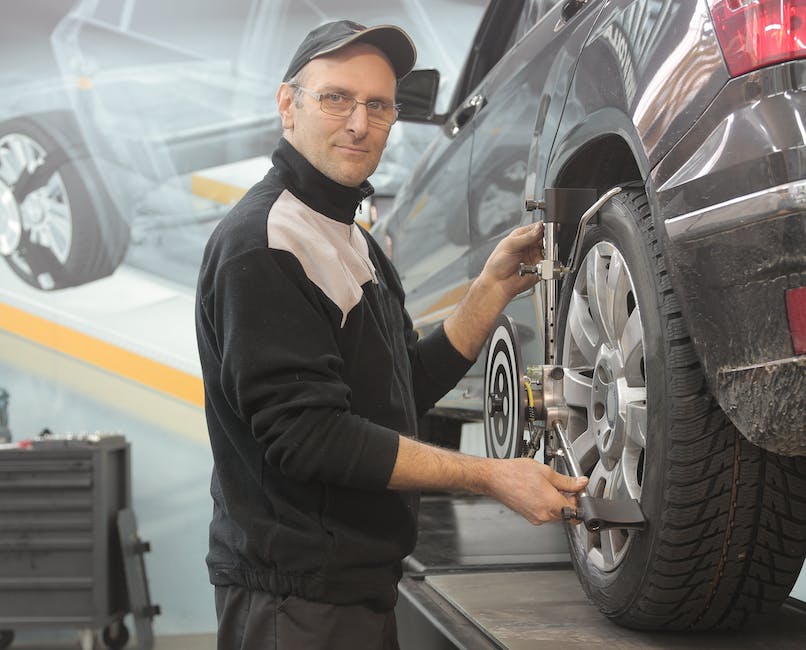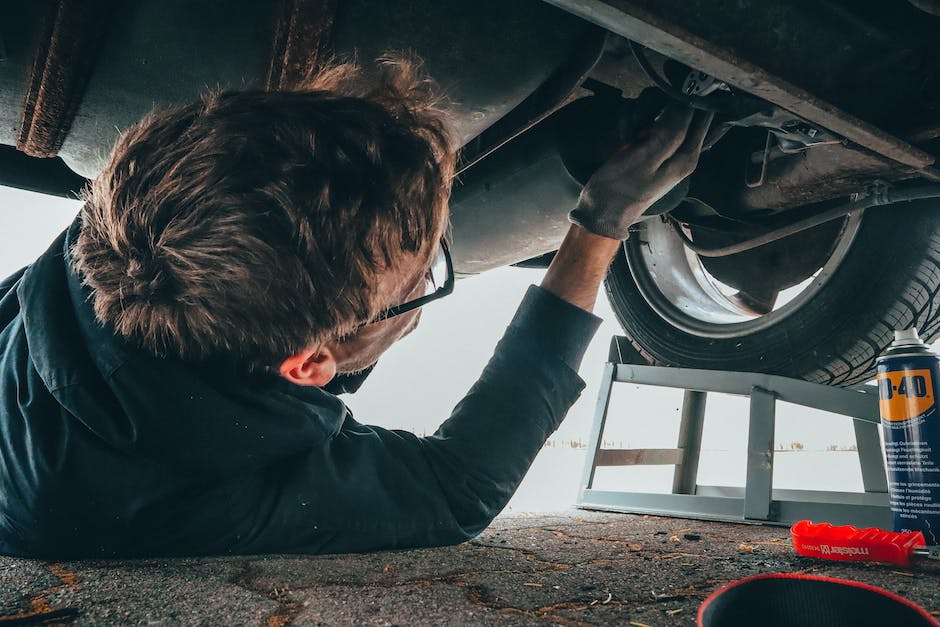Avoiding Common Car Maintenance Mistakes

Last Updated on October 23, 2023 by Christ
Maintaining the health of your car is much like maintaining your health. Ignoring minor symptoms may lead to severe complications, whereas addressing issues promptly often prevents further damage. As such, understanding the basics of vehicle maintenance, from acknowledging its importance to identifying functions that require a deft professional hand, is critical. This document further talks about the pitfalls of using substandard or incorrect parts and fluids, casting a light on their potential to damage your vehicle and shorten its lifespan. Equipped with this knowledge, you’re sure to steer clear of avoidable car maintenance mistakes and keep your ride running smoothly for many miles down the road.
Contents
Ignoring regular maintenance
The High Cost of Ignoring Regular Vehicle Maintenance
Jumping right into the thick of it, the neglect of regular vehicle maintenance may feel like a savvy way to save money. After all, those small add-ups at the auto-shop might seem unnecessary, especially when the car is seemingly running just fine! However, this could lead to severe consequences that go beyond a dent in the wallet. This article aims to shed light on the importance of regular car maintenance from a seasoned vehicle enthusiast point of view.
Firstly, it’s essential to understand that regular vehicle maintenance is a critical form of preventive care. When we skip routine checks and fail to fix minor issues, these seemingly inconsequential problems may snowball into major failures. A simple oil change today can prevent engine troubles down the road. A missed inspection of the tires could lead to a nasty blowout on the highway.
Probably the most significant consequence of neglecting vehicle maintenance is the decreased lifespan of a vehicle. Vehicles are designed to last long durations, but insufficient maintenance practices can cut those expected years by over a half. It’s a case of pay a little now or pay a lot later—the latter option usually resulting in having to buy a new car well before necessary.
It’s not just about the vehicle suffering, though. Lack of regular maintenance can lead to a surprisingly steep decrease in fuel efficiency. An engine running on dirty oil, or on old spark plugs, has to work harder, translating to less distance traveled per gallon of gasoline. The cost of ignoring those $50 oil changes can add up quickly when viewed from the fuel-efficiency perspective.
Remember, safety should always be at the forefront of every vehicle owner’s mind. Regular maintenance goes hand-in-hand with the safety of the vehicle operator and passengers. Overlooking something as trivial as brake fluid or tire pressure could potentially lead to dangerous accidents, putting lives at risk. Checking these routinely can make all the difference.
On a different note, were you aware that regular maintenance keeps the resale value of your car from taking a nosedive? Well-maintained vehicles have a long history of passed inspections and kept-up maintenance, making them highly desirable in the used-car market.
Finally, environmental sustainability is a moral responsibility of every vehicle owner. A well-maintained automobile emits less pollution than one that is neglected, keeping the environment cleaner and more sustainable.
In the thrilling world of automobiles, regular maintenance is the superhero often overlooked. It may not seem like the most exciting part at first, but once you realize the consequences of ignoring it, you’ll likely make it a priority. After all, investing time and effort now will save money, ensure the safety of all passengers, and ensure our favorite vehicles have the long, healthy life they deserve!

Trying to DIY complex tasks
The Hidden Risks of Tackling Complex Car Maintenance Tasks Solo
Get out there, put on those work pants and roll up your sleeves — the do-it-yourself (DIY) trend is on the rise. The sense of accomplishment that comes from repairing your vehicle on your own is undoubtedly overwhelming. However, while enthusiasm counts, more complicated tasks that require a professional’s expertise can turn into perilous endeavors for the DIY car enthusiast.
Firstly, cars are sophisticated pieces of machinery, especially modern ones boasting a remarkable array of electronic control units and systems. One minor misstep with an intricate car part can sometimes lead to serious complications down the line. A mechanic’s expertise is not random; they train for years understanding the nuanced and complex architecture of different vehicles ensuring every procedure is performed accurately and safely. Ensuring accuracy in advanced repairs like timing belt replacements, brake line repairs, or transmission-related tasks requires a seasoned hand and a professional’s insight.
Secondly, home garage mechanics run the risk of inadvertently damaging other components of the car while attempting advanced maintenance tasks. With limited knowledge and experience, what starts as a simple repair can quickly escalate into a costly overhaul. Now imagine if that happened to an electrical component like a car’s ECU – the “brain” of the vehicle – a well-intentioned tinkering session might inadvertently degrade your car’s performance or worse, render it unresponsive.
Thirdly, the equipment required to carry out complex repairs safely and effectively is often beyond the average hobbyist’s possession. A professional mechanic’s workshop is equipped with specialized diagnostic tools, lifts, and other expensive equipment that isn’t typically found in a home garage. These tools aren’t just convenient – in many repair jobs, they’re essential for ensuring the task is done correctly and safely. And investing in such tools for individual use can end up costing more than the services of a professional mechanic.
Lastly, let’s address the elephant in the room: warranties. Vehicle warranties often come with the clause: repairs have to be performed by certified professionals. Attempting complex maintenance tasks by oneself can void this safety net, transforming small issues into significant financial liabilities in the future.
In conclusion, while some view DIY automotive work as an expression of self-reliance, many complex tasks demand the precision, expert knowledge, and resources of a professional mechanic. As dedicated hobbyists, we should know our limits, respect the complexity of the vehicles we cherish, and leave the advanced repairs to those equipped to handle them. After all, our ultimate goal should be to ensure the health and longevity of our valued machines. Let’s practice our passion intelligently, and here’s to many more years of happy wrenching!

Using incorrect or poor-quality parts and fluids
Just as a well-oiled machine runs smoothly, the same goes for your vehicle. Using incorrect or low-quality parts and fluids can drastically impact the performance of your vehicle, leading to astronomical repair costs and potential safety hazards.
Starting with the engine, the heart of your vehicle, using low-quality oils can cause severe damage. Motor oil lubricates the engine by creating a protective layer between moving parts to reduce friction. The wrong oil or low-quality oil can increase wear and tear, inducing overheating, sluggish performance, and could even lead to a complete engine failure. Brake fluids, transmission fluids, and coolant fluids all have their individual roles to play, and using a lower grade than required can have similar detrimental effects.
The situation is no less grave when it comes to vehicle parts. Inferior quality or ill-fitted parts may not interact correctly with your vehicle’s system, leading to inefficiency and increased strain on other components. For instance, using a low-grade air filter can allow debris into your engine, affecting combustion efficiency and damaging cylinder walls, piston rings, and bearings. In turn, this could lead to decreased fuel economy, increased emissions, loss of power, and in the long run, shortened engine life.
Cheap or incorrect spark plugs are another concern. A spark plug that isn’t heat-rated for your specific vehicle can lead to ignition problems and engine misfire. On the other hand, an incorrect spark plug gap can lead to poor fuel economy and reduced power.
Something as simple as a substandard windshield wiper blade may not seem like a big deal, but it could become one during a rainstorm on a slick highway. Inferior blades can streak, skip, or squeak, obstructing your view and increasing the risk of an accident.
The quality of the tires you choose, too, is paramount for your vehicle’s performance. Low-quality tires may not hold up under heavy use or adverse conditions leading to a risk of a blowout or decreased handling and braking capabilities. A tire blowout at high speeds can be disastrous for everyone involved.
The last but not the least, let’s touch upon the battery. It’s the unsung hero that brings your vehicle to life each time you insert the key into the ignition. A cheap or incorrect battery might result in erratic starting, or worse, strand you in the middle of nowhere.
Keeping up with regular maintenance and using high-quality, correct parts and fluids ensures your vehicle runs at optimum performance, minimizes cost-intensive repairs, and improves the longevity of the vehicle. It may seem like a lot to take in, but in reality, the health of your vehicle and the safety of those riding in it depend on it. After all, your vehicle is more than just a mode of transportation. It’s an extension of your world that deserves the right care and attention. Invest wisely in the care of your vehicle, because when everything runs right, you can focus on enjoying the ride!

Our journey through the landscape of common car maintenance mistakes emphasizes that staying informed and taking action promptly is the key to safeguarding your vehicle’s health. Recognizing the significance of regular maintenance, learning to distinguish between DIY-able and professional-required tasks, and understanding the potential impact of low-quality parts and fluids on your vehicle, are pivotal aspects of smart car ownership. Fortified with this knowledge, one can avoid common pitfalls, enhance the lifespan of their vehicle and contribute towards a safe driving experience. Remember, taking care of your car is not just about preserving an investment, but also about ensuring the safety of yourself and your loved ones on the road.
Leave a Reply